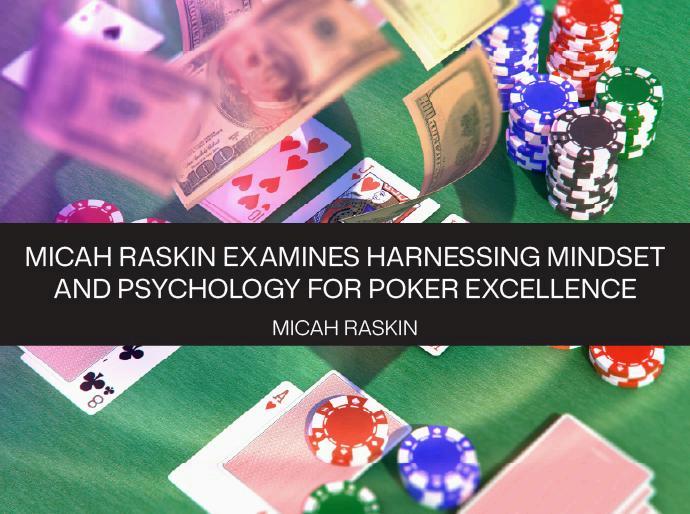Beyond the Table: The Professional Poker Lifestyle and What It Really Looks Like
by Micah Raskin
Published on: 08/29/2025

Many people envision the professional poker lifestyle as glamorous and exciting, characterized by big wins, luxury travel, and endless parties. While some aspects of this may be true, the reality of playing poker professionally is often quite different Understanding the myths versus reality helps aspiring players prepare mentally and practically for the game's challenges, as noted by Micah Raskin
One common myth is that professional poker players make easy money Movies and media often show players walking away from the table with huge stacks of cash. In reality, poker income can be highly inconsistent Players experience swings, winning large sums one month and losing significant amounts the next. Mental toughness, discipline, and careful bankroll management are essential for navigating these fluctuations and maintaining a stable lifestyle.
Another misconception is that pros have unlimited free time. While poker can offer flexibility, it also demands long hours of focus and study Successful players spend hours reviewing hands, analyzing opponents, and learning new strategies Traveling to tournaments or playing online for extended sessions requires stamina and dedication. The professional poker lifestyle is not just about playing games; it’s about constant learning and improvement
Many people assume that poker is purely a game of luck. While luck can affect individual hands, professional players recognize that skill, psychology, and strategy ultimately determine long-term success. Professionals study probabilities, read opponents’ behavior, and make calculated decisions The reality is that the poker lifestyle involves continuous mental work, patience, and strategic thinking
Social myths also surround the poker lifestyle People imagine constant parties, flashy events, and a glamorous social scene While big tournaments can be social, much of a pro’s life involves solitary work. Online players spend hours alone at a computer, and even live players often need quiet time to focus Loneliness and isolation can be challenges that many new players underestimate
Stress management is another reality that contrasts with the myth of a carefree life Professional poker can be emotionally taxing. Losing streaks, high-stakes decisions, and financial uncertainty create pressure Players must develop resilience, mental toughness, and coping strategies The lifestyle requires more than enjoying the game; it demands emotional intelligence and self-control.
Despite these challenges, there are real benefits to the professional poker lifestyle Successful players enjoy the freedom to set their schedules, travel for tournaments, and pursue a career built on skill and strategy For those who embrace the reality of discipline, focus, and mental preparation, poker can be rewarding both financially and personally.
